Maritime & Jones Act Lawyer – Serving the Gulf Coast & Nationwide Waterways
Maritime Work Across the Gulf Coast, Intracoastal Canals & U.S. Waterways
Maritime employment spans far beyond the open ocean. Along the Texas and Louisiana Gulf Coast, across the Intracoastal Waterway, and up through the Mississippi River system, thousands of seamen, deckhands, engineers, and offshore workers face daily risks. These dangers aren’t limited to oil rigs — they occur on towboats, dredges, fishing trawlers, ferries, tankers, container ships, and supply vessels. For decades Trial lawyer, David P. Willis has successfully represented clients injured from Brownsville, Texas, to Mobile, Alabama, to Maine, to Alaska and beyond, as well as those working in the nations’ river systems, intercoastal waterways, ports, shipping lanes and the Atlantic and Pacific coasts.
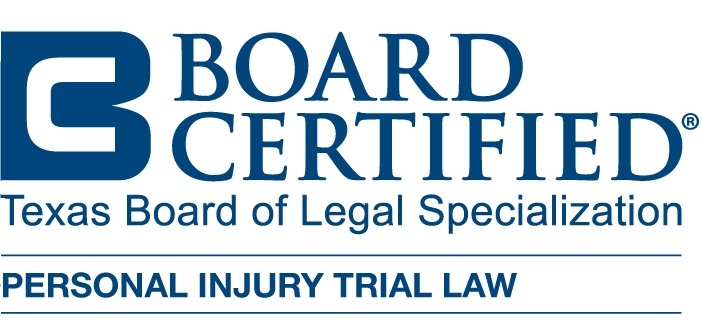 Board-Certified in Personal Injury Trial Law in Texas since 1988 and recognized as a Top Texas Trial Lawyer with over 40 years of catastrophic injury experience, David P. Willis has the skill, resources, and determination to take on complex maritime and Jones Act injury claims. Licensed in Texas and New York — and working through bar-compliant association agreements with trusted local counsel — he helps injured seamen, crew members, and harbor workers nationwide.
Board-Certified in Personal Injury Trial Law in Texas since 1988 and recognized as a Top Texas Trial Lawyer with over 40 years of catastrophic injury experience, David P. Willis has the skill, resources, and determination to take on complex maritime and Jones Act injury claims. Licensed in Texas and New York — and working through bar-compliant association agreements with trusted local counsel — he helps injured seamen, crew members, and harbor workers nationwide.
As a former attorney for the Supreme Court of Texas, Willis knows how to move fast to preserve evidence, navigate maritime safety regulations, and hold negligent vessel owners and maritime employers accountable for the full measure of damages his clients deserve.
Complexity of Jones Act Litigation
Jones Act claims require more than proving you were injured at work. A winning case demands:
- Establishing seaman status under federal law.
- Proving employer negligence — even a minor safety violation can trigger liability.
- Showing a causal link between the negligence and your injury.
- Demonstrating economic and non-economic damages with precision.
David P. Willis works with a team of maritime safety engineers, naval architects, maritime injury attorneys, vocational experts, and medical specialists to build strong, evidence-backed cases. Whether negligence stems from improper vessel maintenance, inadequate crew training, or failure to follow Coast Guard safety protocols, he knows how to uncover it and present it persuasively to a judge or jury.
Jones Act vs. General Maritime Law vs. Workers’ Compensation – Know Your Rights
If you’re injured while working offshore or on navigable waters, your legal rights and remedies are very different from those of land-based workers. Understanding the distinction between the Jones Act, general maritime law, and state workers’ compensation can make the difference between a limited payout and full, life-changing compensation.
The Jones Act
The Jones Act is a federal law that allows qualifying seamen — workers who spend a significant portion of their time aboard a vessel in navigation — to sue their employer for negligence. Unlike workers’ comp, a Jones Act claim can include damages for pain and suffering, future medical expenses, and loss of earning capacity. The burden of proof is lighter than in most negligence cases — even “slight negligence” can establish liability.
General Maritime Law
General maritime law is a centuries-old body of legal principles that applies to all maritime workers and vessel owners. It covers claims such as unseaworthiness (holding vessel owners strictly liable for unsafe conditions) and maintenance and cure (living expenses and medical care until maximum recovery). These protections are separate from, and can be pursued alongside, a Jones Act claim if you qualify.
Workers’ Compensation
Land-based employees who are hurt on the job typically receive benefits through state workers’ compensation systems. These benefits are limited — usually covering only medical costs and partial wage replacement, with no recovery for pain, suffering, or full lost earning potential. Most offshore workers are excluded from state workers’ comp and instead must rely on maritime laws for recovery. If you’re a seaman, you are generally not covered by workers’ comp. Instead, you have potentially much stronger rights under the Jones Act and general maritime law — rights that often result in far greater compensation.
Maintenance and Cure – Your Immediate Lifeline After a Maritime Injury
Under general maritime law, injured seamen are entitled to maintenance and cure — a legal right that exists regardless of fault. This benefit is one of the most important protections for offshore workers, but it is also one of the most misunderstood and most frequently underpaid by maritime employers.
Maintenance refers to the daily living allowance a seaman receives while recovering from an injury or illness sustained in the service of the vessel. This stipend is meant to cover basic living expenses such as rent, utilities, and food until you are fit for duty or reach maximum medical improvement (MMI). Unfortunately, many employers try to pay a fraction of what a seaman truly spends to live — sometimes offering as little as $15–$30 per day.
Cure covers all reasonable and necessary medical expenses related to your injury or illness, including emergency care, surgeries, rehabilitation, prescription medications, and specialist visits. Cure must be provided until you have reached MMI, even if treatment takes months or years.
When an employer refuses to pay maintenance and cure, stops payments early, or delays approval of medical care, they can be held liable for additional damages — including punitive damages and attorney’s fees — if their refusal is found to be willful and unreasonable.
An experienced maritime injury lawyer knows how to document your living expenses, prove medical necessity, and force employers to meet their legal obligations. David P. Willis has successfully compelled shipowners and offshore companies to pay full maintenance and cure benefits for injured seamen along the entire Gulf Coast, intercoastal waterways, and U.S. river systems.
Common Maritime Injuries We Handle
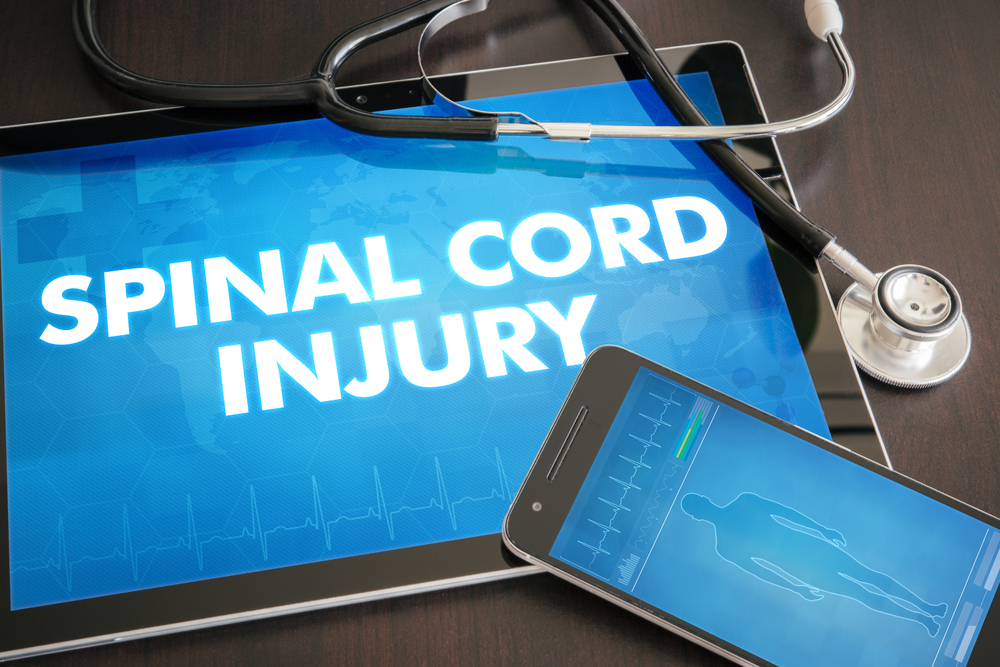 Maritime work often involves ropes, poorly maintained vessels, cables, heavy machinery, high-pressure equipment, and unpredictable environments, which can result in:
Maritime work often involves ropes, poorly maintained vessels, cables, heavy machinery, high-pressure equipment, and unpredictable environments, which can result in:
- Traumatic brain injuries (TBI) from falls or being struck by swinging loads.
- Crush injuries from cargo, rig equipment, or mooring lines.
- Amputations from winch, capstan, or anchor chain accidents.
- Severe burns from galley fires, welding mishaps, or fuel explosions.
- Spinal cord injuries and paralysis from falls into holds or overboard incidents.
- Repetitive strain injuries from lifting, pulling, and handling heavy gear, and equipment.
- Herniated Discs and Back Injuries from heavy loads without help.
These serious injuries can result in lifelong medical care and permanent loss of earning capacity. Maritime employers and their insurance companies will do everything possible to limit your recovery — sometimes offering quick settlements before you fully understand the scope of your injuries or by forcing you back to work making the job unmanageable due to pain. We make sure your case reflects the true lifetime cost of your injury. In every case, we investigate OSHA maritime standards, Coast Guard regulations, and international safety codes to establish fault.
IME - What You Need to Know About an Independent Medical Exam in Injury Cases
An Independent Medical Examination (IME) is a medical evaluation requested by an insurance company, employer, or defense attorney in a personal injury or workers’ compensation case. The purpose—at least on paper—is to obtain an “objective” medical opinion from a doctor who has not been involved in your treatment. In reality, the IME is usually arranged and paid for by the opposing side, meaning the doctor’s true “client” is the company or insurer, not you.
Companies request an IME to gather evidence that can limit or deny your claim. They may hope the doctor will conclude that your injuries are not as severe as reported, are unrelated to the accident, or that you can return to work sooner than your own physician recommends. The findings often become part of the defense’s case to reduce settlement value or avoid paying benefits.
The danger lies in bias. IME doctors often receive a steady stream of referrals from insurance carriers and defense firms. This financial relationship creates an incentive—conscious or not—to produce reports favorable to the party who hired them. These doctors may downplay injuries, omit symptoms you describe, or emphasize unrelated preexisting conditions to undermine your claim.
To protect yourself:
- Prepare in advance. Review your medical history and know your timeline of symptoms and treatment.
- Be consistent and honest. Do not exaggerate, but be thorough in describing your pain and limitations.
- Bring a witness. If allowed, have someone present to take notes.
- Do not allow an Insurance representative to attend IME. (read below)
- Document the experience. Write down what was asked, what you answered, and how the exam was conducted.
- Consult your attorney before and after. They can help you anticipate tactics and challenge misleading conclusions.
While you cannot usually refuse an IME if it is legally ordered, understanding its purpose and preparing carefully can help prevent it from damaging your case. You need to notify your maritime lawyer as soon as you hear the term “IME” and let them explain the pitfalls that may occur.
When Case Managers Trying to Attend Your IME
Insurance companies sometimes try to send a “case manager” or adjuster to an Independent Medical Examination (IME) with you. This is not for your benefit — their job is to observe, take notes, and potentially influence the doctor’s impressions in ways that help the insurance company, not you. You have the RIGHT TO REFUSE their presence during the exam. Allowing them in can create an intimidating environment, lead to biased reporting, and affect the fairness of the evaluation. If you’re asked to allow an adjuster or case manager in the room, politely decline and immediately notify your attorney. The IME should be between you and the doctor only, without interference from insurance representatives whose goal is to minimize your claim.
Holding Vessel Owners & Third Parties Accountable for Your Injuries
Many maritime accidents involve multiple responsible parties:
- Vessel owners for unseaworthiness.
- Employers for Jones Act negligence.
- Equipment manufacturers for defective winches, ladders, or navigation systems.
- Dock operators for unsafe gangways or loading procedures.
- Third-party contractors for botched repairs or unsafe work practices.
Because these cases often involve overlapping jurisdictions and complex insurance issues, you need a lawyer with decades of maritime trial experience to ensure no liable party escapes accountability.
Evidence Preservation in Maritime Cases
Maritime employers and insurance adjusters often move quickly to protect themselves after an accident — sometimes before the injured worker even reaches shore. This is why early legal intervention is critical.
David P. Willis immediately takes steps to:
- Demand preservation of VDR (Voyage Data Recorder) data.
- Secure deck logs, engine room logs, and maintenance records.
- Photograph and inspect defective equipment before it’s replaced.
- Obtain Coast Guard incident reports.
- Locate and interview key crew witnesses.
Without this evidence, maritime injury cases can become far more difficult to prove.
Why Time is Critical in Maritime Claims

Under the Jones Act and general maritime law, there are strict statutes of limitation — often three years from the date of injury, though certain claims may have shorter deadlines. From the moment you report your injury, the maritime claims adjuster is already working against you. They may:
- Visit the vessel to take control of the scene
- Interview crew members before you can speak to them
- Remove or repair defective equipment
- Push you to give a recorded statement designed to minimize your claim
By hiring a maritime injury attorney immediately, you can:
- Preserve critical evidence before it’s altered or destroyed
- Ensure witness statements are recorded accurately
- Stop the company from steering your claim toward a lowball settlement
Jack-Up Rigs & Mobile Drilling Rigs and Barges Claims
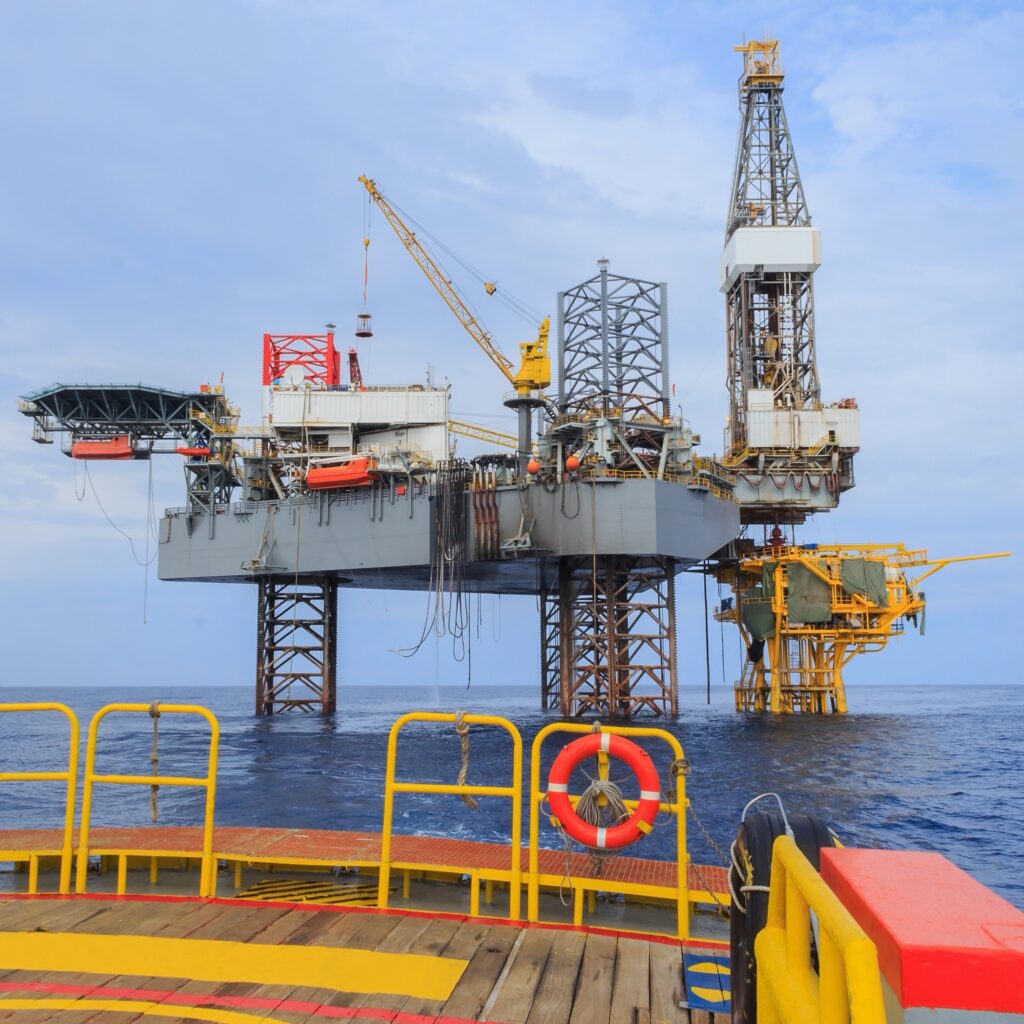 Working on non-platform offshore rigs, jack-up rigs, spud barges, semi-submersibles, and production platforms carry unique hazards. These environments combine high-pressure drilling operations, heavy equipment, volatile chemicals, and extreme weather. When safety protocols are ignored or equipment is poorly maintained, catastrophic accidents can follow — including:
Working on non-platform offshore rigs, jack-up rigs, spud barges, semi-submersibles, and production platforms carry unique hazards. These environments combine high-pressure drilling operations, heavy equipment, volatile chemicals, and extreme weather. When safety protocols are ignored or equipment is poorly maintained, catastrophic accidents can follow — including:
- Blowouts and well-control failures
- Fires and explosions
- High-pressure hose and line ruptures
- Heavy equipment crush injuries
- Falls and crew boat transfer injuries.
Under maritime law and the Jones Act, injured rig workers may recover damages from their employers and from third-party contractors, equipment manufacturers, and vessel owners whose negligence contributed to the incident.
Gulf Coast & Inland Waterway Maritime Injury Representation
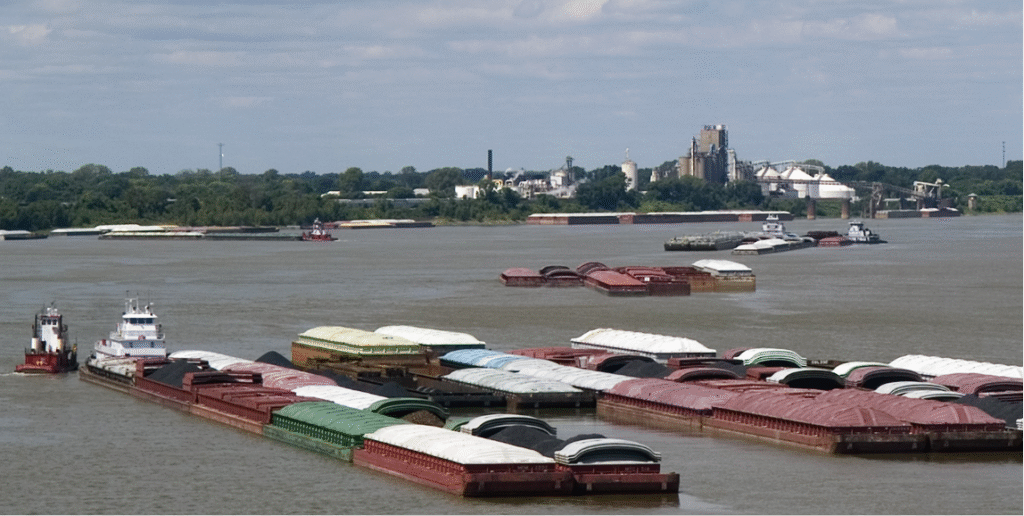 From the busy ship channels of Houston, Galveston, and Port Arthur, to the oilfield support fleets in Corpus Christi, Louisiana, Mississippi, and Alabama, and all the way along the Intracoastal Waterway up the Eastern Seaboard, maritime work remains some of the most dangerous in the world.
From the busy ship channels of Houston, Galveston, and Port Arthur, to the oilfield support fleets in Corpus Christi, Louisiana, Mississippi, and Alabama, and all the way along the Intracoastal Waterway up the Eastern Seaboard, maritime work remains some of the most dangerous in the world.
David P. Willis represents injured workers across the entire Gulf Coast and beyond, including:
- Offshore drilling platforms and jack-up rigs
- Tug and towboat crews on the Mississippi River and inland waterways
- Commercial fishing and shrimping vessels
- Barge and cargo ship crews along the Intracoastal Canal
- Tanker, container, and supply vessel operations in international waters
Whether your case involves a bluewater shipping injury in the Atlantic, a deck accident in the Gulf of Mexico, or a crane collapse in a Louisiana port, we have the federal court experience and maritime law knowledge to fight in any jurisdiction.
Top 15 Mistakes Injured Maritime Workers Make After an Accident
Maritime injury cases — whether under the Jones Act, unseaworthiness doctrine, or general maritime law — are often decided in the first few days after an accident. Injured seamen, deckhands, rig workers, and crew members sometimes make innocent choices that permanently weaken their claims. Here’s what you must avoid to protect your rights:
Delaying your report — even by a day or two — gives your employer and their insurer a reason to claim the injury happened somewhere else or wasn’t serious. Always report the incident in writing, keep a copy, and make sure it’s signed and dated.
These recordings are rarely in your favor. Maritime adjusters are trained to ask leading questions to reduce company liability. Politely decline and tell them your attorney will handle communications.
Buried in “routine” accident paperwork can be releases, waivers, or misleading statements about how the accident occurred. Never sign without your lawyer’s review.
Dangerous conditions — like broken winches, worn mooring lines, or slick decks — are often “fixed” before an outside expert sees them. Your lawyer can issue evidence preservation letters and even seek a court order to stop the destruction.
The “Independent Medical Examination” is usually anything but independent. These doctors are chosen by your employer to downplay injuries and push you back to work early.
Photos, videos, medical test results, and even a pain journal can be critical. Detailed documentation helps prove your pain, physical limitations, and emotional distress.
Many maritime workers feel pressured to “tough it out.” Returning before you’ve fully recovered risks further injury and gives the company ammunition to claim you weren’t that hurt.
The Jones Act allows for damages far beyond standard workers’ comp — but it also requires proving negligence. A maritime attorney will know what evidence is needed to meet that standard.
Even innocent photos — like smiling at a family BBQ — can be twisted to suggest you’re not truly injured. Avoid posting anything about your health, activities, or the accident.
Every day you wait, your employer’s legal team and insurers are shaping the case in their favor. Early legal intervention protects evidence and witness accounts.
Verbal assurances mean nothing without a signed legal settlement — and often the “care” they provide is minimal compared to what you’re owed under the Jones Act or general maritime law.
Some maritime injuries, like concussions, spinal disc damage, or toxic exposure illnesses, develop slowly. Report all new or worsening symptoms immediately, and get them documented by a physician of your choice.
Accident reports, ship logs, maintenance records, and your medical charts can mysteriously “go missing” if left solely in the company’s hands. Always keep duplicates.
From medical evaluations to accident reconstruction, experts hired by your employer are there to limit payouts. A strong maritime lawyer will bring in independent, credentialed experts to provide unbiased opinions.
Early settlements may seem attractive, especially if you’re struggling financially, but once you sign, you can’t reopen the claim. Serious maritime injuries often have long-term costs that aren’t immediately obvious.
If you’ve been injured on a vessel, oil rig, barge, or in any maritime job, call 1-800-883-9858 immediately for a free case review. Early legal help can mean the difference between a lifetime of financial struggle and a settlement that truly covers your losses.
Why You Need a Maritime Lawyer Investigating Immediately Your Injury Accident
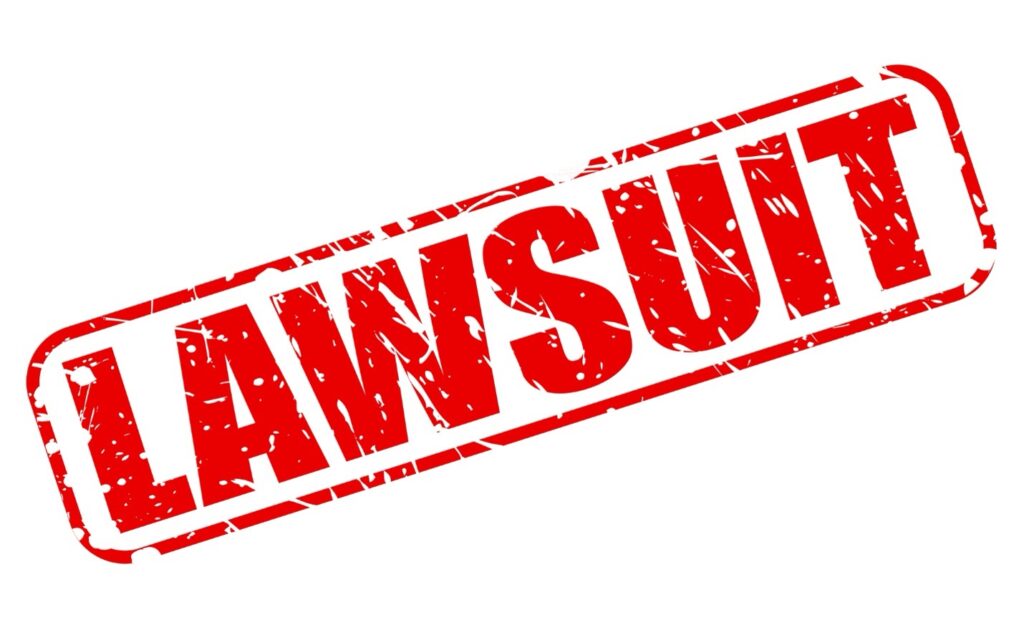 After an offshore accident, your employer and their insurance company start building their defense within hours — sometimes before you’re even back on shore. Their maritime insurance adjusters are trained to protect the company’s bottom line, not your health or financial future. They know exactly what evidence to secure, what witnesses to talk to, and how to document the incident in a way that benefits them.
After an offshore accident, your employer and their insurance company start building their defense within hours — sometimes before you’re even back on shore. Their maritime insurance adjusters are trained to protect the company’s bottom line, not your health or financial future. They know exactly what evidence to secure, what witnesses to talk to, and how to document the incident in a way that benefits them.
If you wait too long to hire an attorney, critical evidence can be lost or altered. Vessel logs can be “updated,” maintenance records can disappear, and unsafe equipment can be repaired or replaced before anyone can examine it. Your co-workers — who may be your best witnesses — can be pressured to change their stories or “forget” key details.
You should also be extremely cautious about speaking with any company or insurance representative. It is common for insurance adjusters to record every conversation in hopes of getting you to say something that limits or destroys your claim. Even casual remarks like “I’m feeling a little better” can be twisted to suggest you weren’t seriously injured or have reached your MMI.
By hiring an experienced maritime injury lawyer immediately, you level the playing field. Your attorney can launch an independent investigation, preserve vital evidence, interview witnesses before their stories change, and protect you from saying anything that can be used against you and most likely file a Maritime or Jones Act lawsuit to push your case to trial or resolution. As experienced maritime attorneys, we work with maritime safety engineers, naval architects, and marine medical specialists to prove negligence and damages in order to help prove your case in court. If the company refuses a fair settlement, we prepare your case for trial in federal or state court — and win verdicts that set precedents.
IMPORTANT: The adjuster or any other person assigned to your case from the company or insurance company, IS NOT YOUR FRIEND in this matter. DO NOT LET YOUR GUARD DOWN!
Speak With a Gulf Coast Jones Act Attorney Today
 If you’ve been injured offshore, on a vessel, or anywhere in service of a ship, the clock is ticking. Delays can destroy your case and cost you your right to full compensation.
If you’ve been injured offshore, on a vessel, or anywhere in service of a ship, the clock is ticking. Delays can destroy your case and cost you your right to full compensation.
Call 1-800-883-9858 now for a free, no-obligation consultation with a top maritime injury lawyer. We advance all case costs, work on a contingency fee basis, and fight to ensure your employer and thir insurers are held fully accountable.
